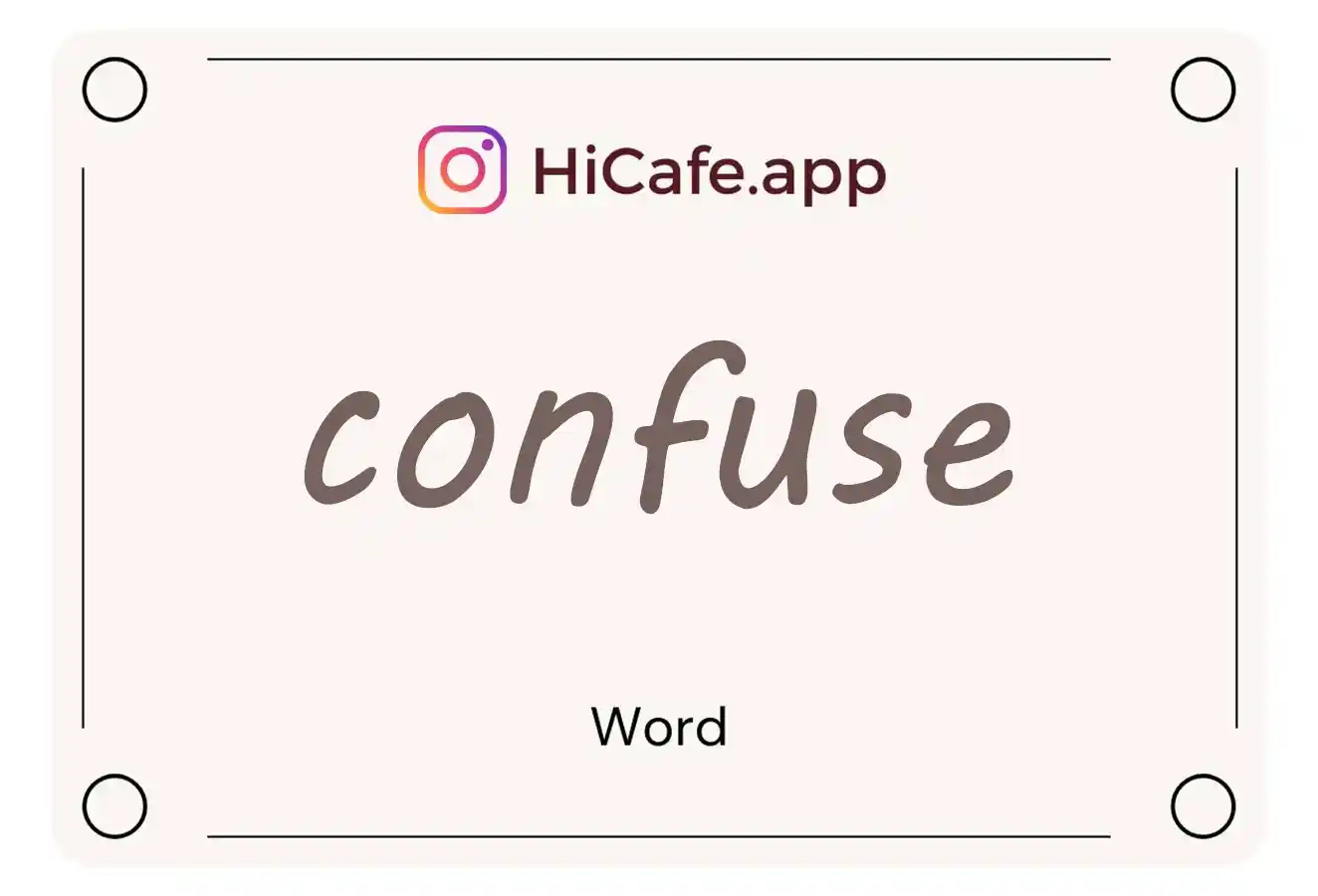Word of the Day: Confuse
| simple | past | past participle |
|---|---|---|
|
confuse
|
confused
|
confused
|
Many of my students know what this word means, but some of them use it incorrectly. When a person is confused, he or she isn’t at all sure about something. There’s a feeling of disorientation and uncertainty.
There are different ways of using this as a verb. Because so many students use it when talking about English, I’ll provide examples for that particular situation and use the first person (I, me): Notice that some of these sentences are in the active voice and some are in the passive voice:
- English confuses me. (active)
- I’m confused by English. (passive)
- Some words confuse me. (active)
- I am confused by some words. (passive)
- I get confused when I speak English. (passive)
These sentences use the word “confuse” as an adjective. The past participle (confused) can serve as both verb and adjective:
- I feel confused.
- I suddenly became confused.
- I’m so confused.
- This is confusing. (This sentence is not in the present continuous tense. “Confusing” functions as an adjective here.)
- Which language is more confusing, English or French?
Use the word “confusion” as a noun.
- Not knowing English causes some confusion for people who live in the United States.
- If you feel any confusion, you should ask a question.
Essential English Dictionary
Visit the Popular English Words Beginning with C page to see the list of all words starting with letter C. For seeing the HiCafe dictionary, visit the Popular English Words with Meaning page.



